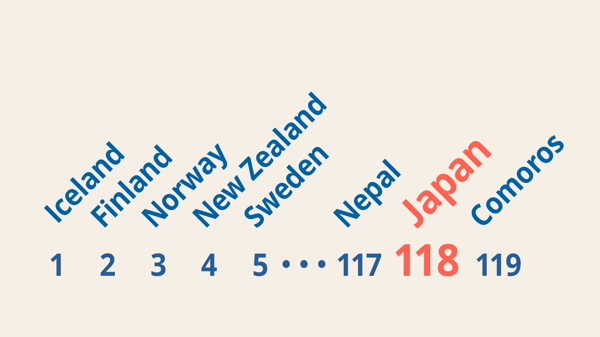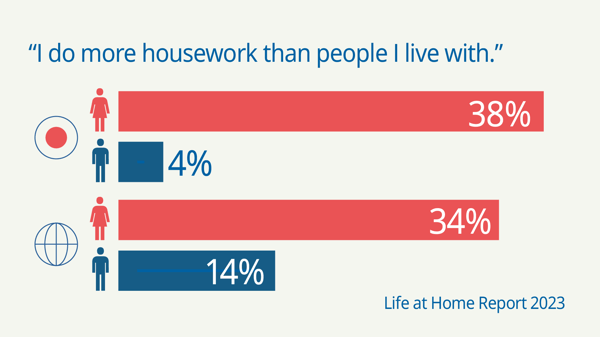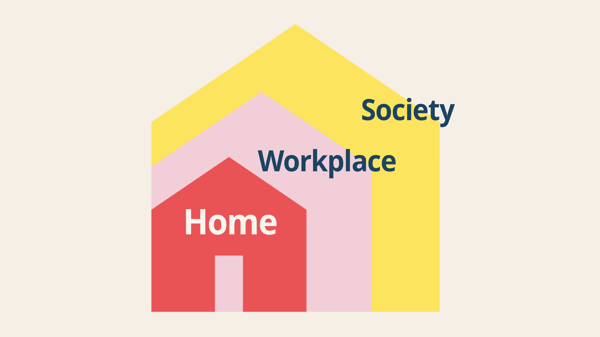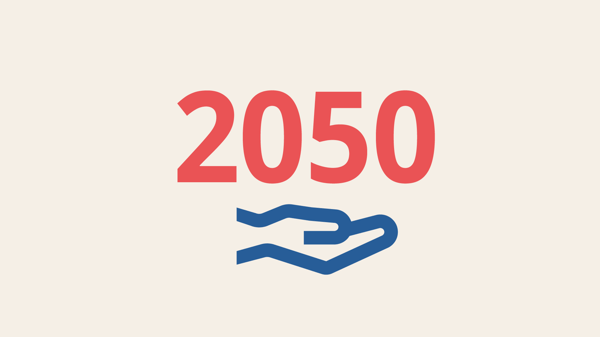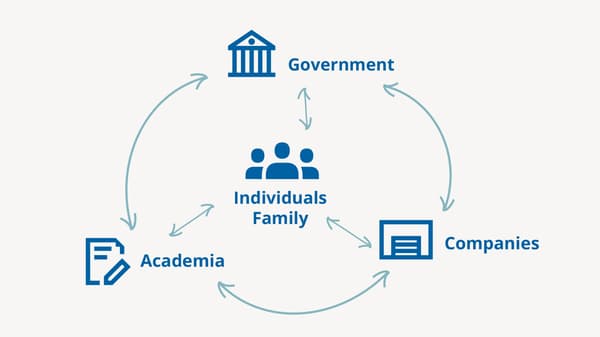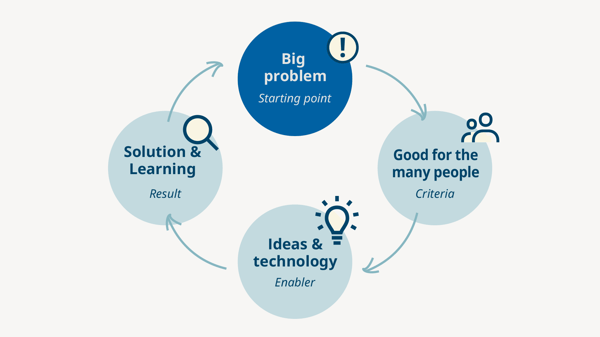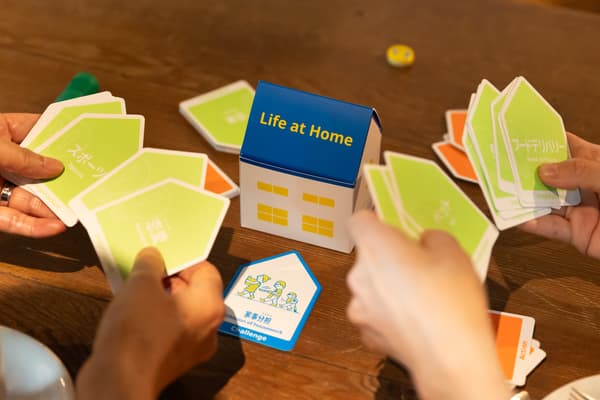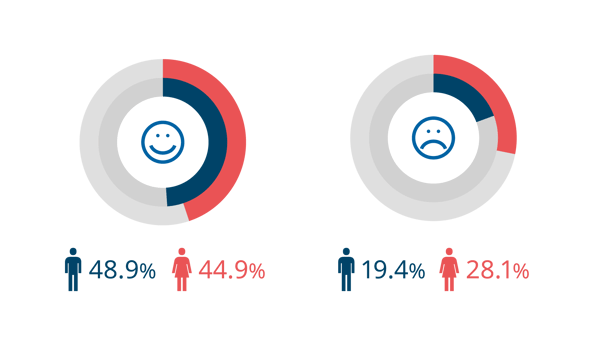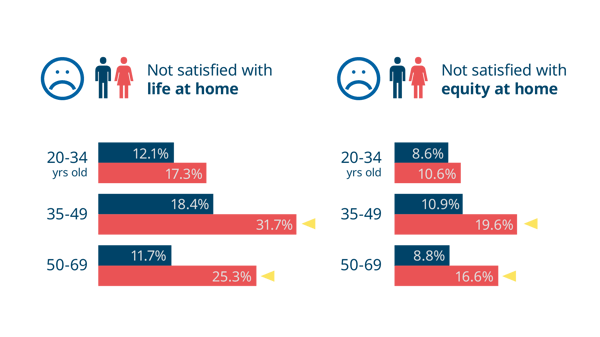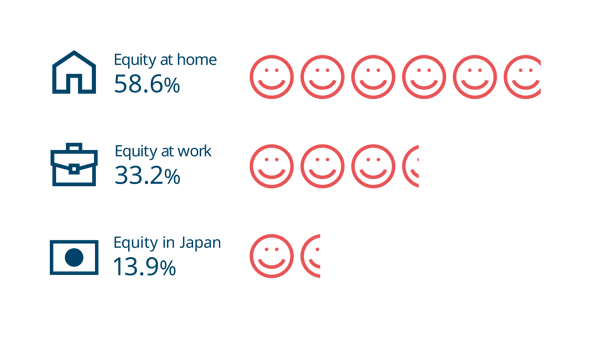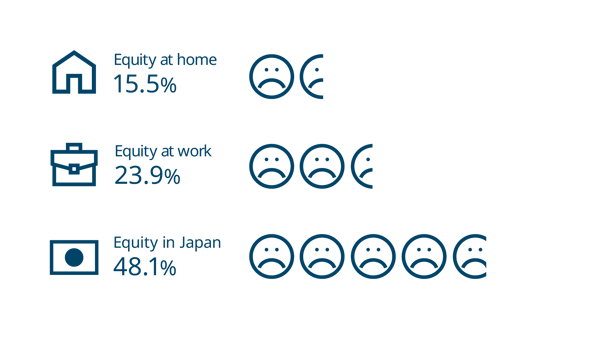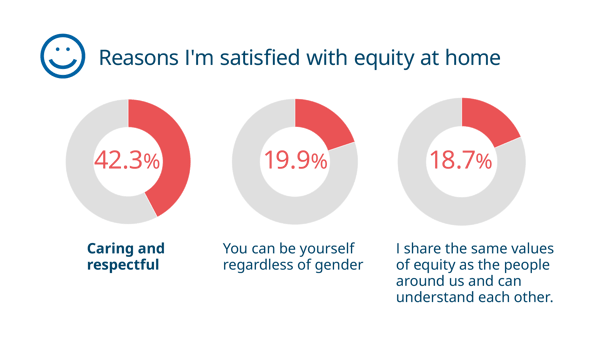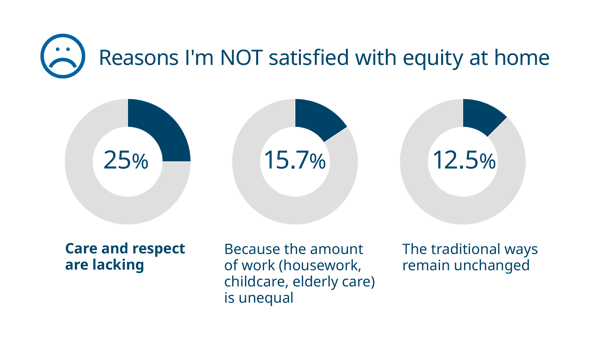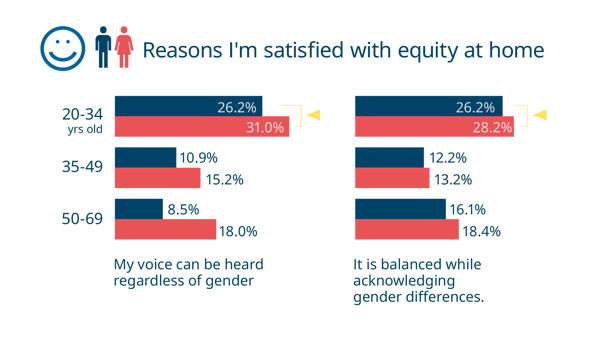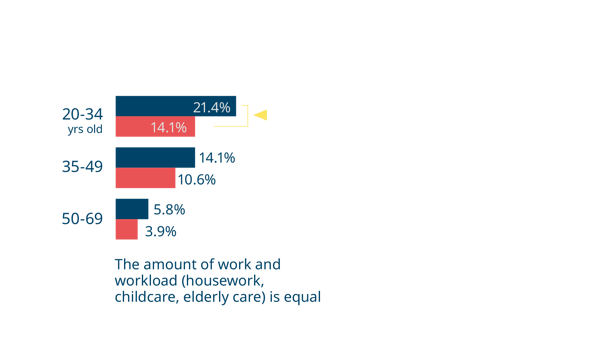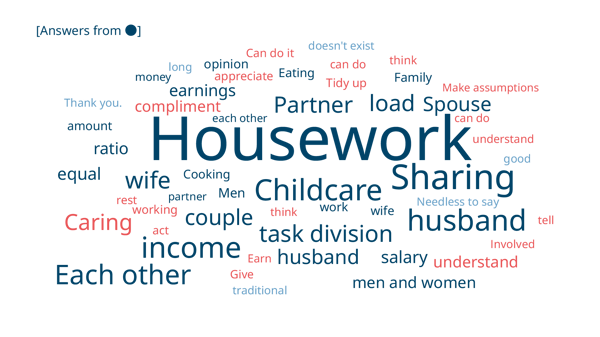Life at Home 2050
Equality starts at home
We believe that fair and equal life start at home. IKEA Japan is launching a new project in 2024 to create home where everyone living in Japan can shine as themselves, feel happy and be healthy.
Equality is a human right. We believe that everyone has a right to be treated equally and has equal opportunities.
So how does the fair and equal world look like?
Let's imagine it together first. What kind of life at home do you want to be living in 2050?

For winners of the Life at Home card campaign
Current state of Japanese society
Gender Gap Index
In the Global Gender Gap Report in 2024 by the World Economic Forum, Japan ranks 118th out of 146 countries. We are far behind the rest of the world especially in the fields of politics and economics. Meanwhile, Sweden, the country where IKEA was founded, is ranked 5th in the world and is one of the leading countries in terms of gender equality.
Gender roles remain unchanged
Gender stereotypes within the family remain unchanged, with men feeling the pressure of being the main breadwinner and working long hours, which in turn places the burden of housework, childcare, and elderly care on women. The Life at Home Report 2023 also found that women are taking on heavier duties at home in Japan.
Various elements intertwines
Equality at home is a very complex and big challenge. Our lives at home cannot be separated from our workplace and society. On the other hand, if we take a fresh look at our most important place "home" and see the challenges as our own, perhaps we can create changes in our daily lives at home. We believe that an accumulation of these small changes can have a big impact on society.
What we aim for
In collaboration with stakeholders
We have been working on various initiatives for "equality at home", but we have learned that "one company cannot do it alone to create a big impact". We believe that we can create significant change to address the complex social issue of equality at home by collaborating with stakeholders such as companies, government, academia, customer, and the media.
Taking a long-term view
We are taking the IKEA innovation approach for this project, aiming to create more impactful actions by repeating the cycle of "sharing“, "learning“ and "acting" together with stakeholders over the next five years. Also, when you imagine the immediate future, you may feel like giving up on change or develop a restrained way of thinking. That is why we are broadening our perspective by looking at 2050, aiming to dream big about our own future.
For each individual to lead a healthy and sustainable life and for Japanese society to become more equal.
Perhaps we can take inspiration from Sweden, one of the leading countries of gender equality. As a Swedish company, IKEA will continue to expand its circle of collaboration and create an impact to society so that everyone feels that they have fair and equal opportunities.
What we have done and are working on
Workshops with participating companies
Together with companies and academia that support Life at Home 2050, we held workshops from June 2024 to discuss our views on gender equality, sharing possibilities and challenges, and insights into the future. We continue to have dialogue to find common purpose, a picture of the future we want to create and the ways to contribute to our common purpose.

"Home Day" symposium and an event with IKEA Family members
IKEA Japan registered 1 August as "Home Day (Yappari-ie-no-hi)" in 2010, and this year held a symposium to announce the launch of "Life at Home 2050“. The companies that participated in the workshops, the Swedish Embassy and experts who support our initiative gathered to discuss current issues of life at home and the future we aim for.
In the afternoon, we held an event for IKEA Family members. LiLiCo, a Swedish-born TV personality and film critic, and her husband, Ryouhei Odai, a TV personality and actor, shared stories of their life at home. All guests and participants also played IKEA Japan's original “Life at Home card game” and enjoyed thinking and talking about ideas for making their lives at home better and happier.

Life at Home card game
Through the Life at Home 2050 workshop, we learned that when it comes to the challenges around us like equality at home, it is important to reflect on it first, verbalize our own thoughts and feelings, and then continue the dialogue with others. That is why we developed a card game as a tool to support people to reflect on their challenges and think about ideas to make their lives at home better in playful ways.
Through the card game, people can talk about things they don't usually have a chance to talk about, realize that what is “normal” in their own home is different from what is normal in others’ home, and discover new ways of living and thinking in their own homes. This is a game that can be enjoyed freely as a family with children, with a partner, or with friends or colleagues.
Research on equality at home
To gain insight into how people in Japan perceive equality, we conducted an online survey of 2,067 individuals over two days, on 5 to 6 July 2024. Here are some of the highlights.
Q. Are you NOT satisfied with your life at home? NOT satisfied with equality at home?
Q. Are you satisfied with equality at home / at work / in Japan?
More than half (58.6%) of the people were satisfied with equality at home (the sum of "very satisfied" and "somewhat satisfied"). However, as we move to the macro level of the workplace and society, the percentage of satisfied people is rapidly decreasing.
Additionally, the percentage of people who are dissatisfied also increase at a more macro level.
Q. Why are you satisfied with your equality at home? Why are you NOT satisfied?
Q. "I think our home would be more equality if ● was ■." Please fill in ● and ■. (Open question)
Looking at the answers in a word cloud, it is clear that "equality" and "sharing" of "housework" are key. We also found that economic factors such as income and mindset such as care and respect are important.
